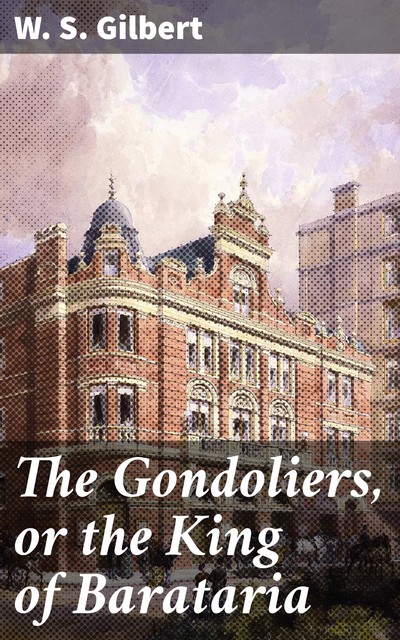We use cookies to improve the Bookmate website experience and our recommendations.
To learn more, please read our Cookie Policy.
To learn more, please read our Cookie Policy.
Accept All Cookies
Cookie Settings
Something went wrong. Try again.
W. S. Gilbert'Äôs operatic masterpiece, “The Gondoliers, or the King of Barataria,” is a brilliant satire of social class and governance, enriched with his characteristic wit and whimsical charm. Set in a fictional Venetian landscape, the narrative unfolds through the comedic entanglements of two gondoliers who are unwittingly revealed to be heirs to the throne of Barataria. The work is marked by lively dialogue, intricate rhyme schemes, and memorable musical numbers, encapsulating the playful spirit of the Victorian era while deftly critiquing the absurdities of monarchy and the nature of identity. Gilbert's skill in blending humor with social commentary places this operetta firmly within the pantheon of British comic opera, echoing the cultural transitions of the late 19th century. As a prominent figure in the collaboration with composer Arthur Sullivan, Gilbert was well-versed in the theatrical trends of his time, drawing upon his own experiences in law, journalism, and the arts. His ability to dissect societal norms through a humorous lens is evident in his extensive body of work. Gilbert's keen observations of the British class system and his interest in dramatic storytelling significantly influenced the creation of “The Gondoliers,” rendering it both a reflection and critique of contemporary society. This enchanting operetta is highly recommended for anyone seeking a thoughtful yet entertaining exploration of societal structures. Readers will find themselves captivated not only by the engaging storytelling and cleverness of Gilbert's writing but also by the universal themes that continue to resonate. Whether a seasoned aficionado of operatic literature or a newcomer to the genre, “The Gondoliers” is a delightful journey that reveals the profound layers beneath its frothy surface.
more
48 printed pages
- Copyright owner
- Bookwire
- Original publication
- 2020
- Publication year
- 2020
- Publisher
- Good Press
Have you already read it? How did you like it?
👍👎
fb2epub
Drag & drop your files
(not more than 5 at once)


